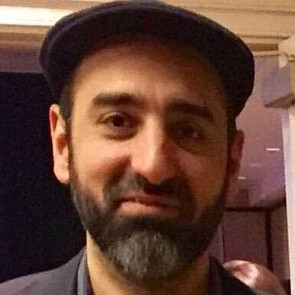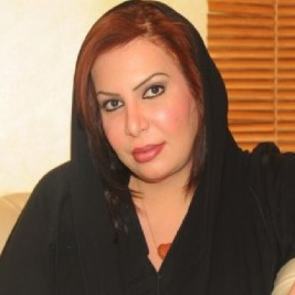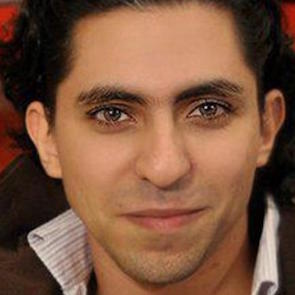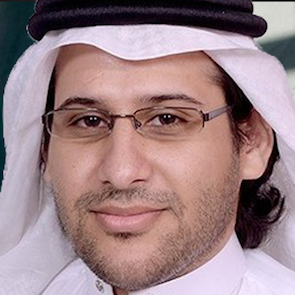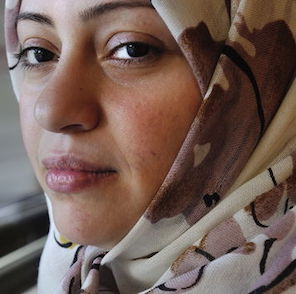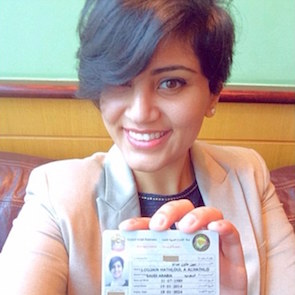UPR Submission - Saudi Arabia 2018
Submission to the 31st Session of the Universal Period Review, November 2018
Date Submitted: 1 April 2018
Summary of main concerns:
1. In the second cycle of the Universal Periodic Review (UPR) held in October 2013, Saudi Arabia accepted recommendations from Germany and Belgium, respectively, to ‘adopt an NGO law which should take into account the views of civil society stakeholders and provide an enabling framework for the development of civil society’ and ‘allow the registration of NGOs that are active in the human rights area, both at the legal and practical level’. It also partially accepted a recommendation from Switzerland to ‘guarantee the right to freedom of expression and conscience of all representatives of civil society, including religious minorities, and to revise the judgements against the prisoners who were convicted for having freely expressed their opinion’. Notwithstanding the acceptance or partial acceptance of the above recommendations, Front Line Defenders deeply regrets that in the years since, the persecution of human rights defenders (HRDs) has continued systematically in the country.
2. Despite the well-publicised reforms to improve the status of women in society, such as the lifting of a ban on women driving, the reality is that the situation for HRDs remains extremely challenging. Women human rights defenders (WHRDs), including young female activists who challenge discrimination against women in society, have been intimidated through travel bans, interrogations and brief detentions. As a power struggle has played out in the Kingdom since late 2017, Crown Prince Prince Mohammad Bin Salman’s consolidation of authority has not led to any meaningful improvements in the situation of HRDs. Repression of HRDs included incommunicado detention, travel bans, harsh prison sentences and unfair trials in specialised courts set up to deal with terrorism. Some HRDs were sentenced to corporal punishments. New counter-terrorism legislation enacted in 2014 and 2017, together with cyber crime legislation, has been regularly used to target HRDs and government critics. Human rights organisations and independent groups are not permitted to operate legally in the country.
Major Legal Developments:
3. A new law on Combating Crimes of Terrorism and its Financing was enacted in November 2017. This law replaced and expanded upon the 2014 counter-terrorism law which was criticised by the UN Special Rapporteur on Human Rights and Counter-terrorism for its sweeping restrictions on human rights and the work of HRDs.1 Although the 2017 law contains minor improvements from the previous law, it still imposes serious constraints on freedom of expression, association and assembly and harsh penalties for offences related to peaceful expression. It includes penalties of five to ten years in prison for ‘portraying the king or crown prince directly or indirectly in a manner that brings religion or justice into disrepute’. The definition of terrorism in the law is not limited to violent acts but includes vaguely worded offences that can be used against defenders peacefully exercising their rights, such as ‘disturbing public order’, ‘shaking the security of the community and the stability of the state’, ‘exposing its national unity to danger’ and ‘suspending the basic laws of governance’. Many HRDs have been prosecuted and sentenced based on these or similar charges over the past four years. Moreover, Article 34 of the law provides for a prison sentence of three to eight years for anyone who supports, promotes, sympathises with, or incites terrorism as it is defined in the law. Article 35 provides for a prison sentence of no less than 15 years for ‘anyone who misuses their status...or media influence to promote terrorism’. The right to due process and a fair trial is also undermined as the law provides powers to the Presidency of the State Security, a security agency created in 2017, and the prosecutor to arrest and detain people for up to 12 months. It further allows for incommunicado detention of up to 90 days, travel bans, monitoring of communications, property searches and seizure of assets without judicial oversight of those suspected of terrorism. Legal representation of suspects is not guaranteed during interrogation or trial of those charged under this law.
Systematic Judicial Harassment of HRDs:
4. HRDs have been systematically subjected to summons, interrogation and prolonged detention. Many have received harsh sentences on charges directly related to their human rights activities or advocacy on legal reforms. The practice of incommunicado detention against HRDs is common in the Kingdom. HRDs have been particularly targeted by the Specialised Criminal Court, which was established in January 2009 to examine cases involving terrorism and crimes related to state security. An analysis of the law establishing this court, as well as an investigation of its cases, shows that its procedures abuse the basic principles of the right to fair trial and due process, including the right to be informed of the charge and the right to legal council. Furthermore, there is no right to independent medical examinations, there is the widespread practice of incommunicado or secret detention, and evidence obtained by torture is admissible.
5. In July 2014, the Specialised Criminal Court in Riyadh sentenced human rights lawyer Waleed Abu Al-Khair to 15 years’ imprisonment, with five years suspended, and a travel ban of equal duration, as well as a fine of 200,000 Saudi riyals (approx. 43,358 EUR). He was arrested following his founding of Monitor of Human Rights, an organisation which documented human rights violations. In January 2015, the Court increased the sentence to 15 years’ imprisonment following an appeal filed by the Public Prosecutor, requesting that the HRD serve the entire 15 year sentence. Waleed Abu Al-Khair was sentenced on charges of ‘striving to overthrow the state and the authority of the king’, ‘criticising and insulting the judiciary’, ‘assembling international organisations against the Kingdom’, ‘creating and supervising an unlicensed organisation’ and ‘preparing and storing information that will affect public security’.
6. HRD Essam Koshak, who has been active on civil and political rights and particularly vocal on issues of corruption and freedom of expression, was summoned in January 2017 by the Criminal Investigation Department in Mecca. He was then detained until he was sentenced to four years in prison in February 2018 by the Specialised Criminal Court in Riyadh on charges of ‘inciting public opinion’ and illegally supporting an end to the women’s guardianship system. Lawyer Issa Al-Nukhaifi, who had been advocating against the government’s policy of forced displacement of persons from the borders between Saudi Arabia and Yemen without adequate compensation, was arrested in December 2016 by security forces in Jizan. His trial before the Specialised Criminal Court began in October 2017 and he was sentenced to six years in prison in February 2018 on charges of ‘inciting public opinion against the rulers’ and ‘insulting authorities’. He was also accused of calling for the release of individuals affiliated with banned organisations, such as the Civil and Political Rights Association in Saudi Arabia (ACPRA), and of being in contact with alleged members of the opposition.
Criminalising Human Rights Associations
7. There is no legal provision for the establishment of NGOs and Saudi authorities refuse to register political or human rights groups. HRDs who establish their groups informally face imminent threats of prosecution and imprisonment. For example, in October 2009, a group of Saudi activists and intellectuals declared the establishment of the Saudi Civil and Political Rights Association (ACPRA) to promote civil and political rights in the Kingdom through reporting, advocacy and collaboration with international human rights mechanisms. In March 2013, a Saudi court dissolved and banned ACPRA and Saudi authorities targeted its founders and leading members. Among ACPRA’s affiliates who were detained and convicted between 2014 and 2017 were Dr. Abddulrahman Al-Hamid, Mohammed Saleh Al-Bajadi, Fawzan Al-Harbi, Dr. Mohammed Fahd Al-Qahtani and Dr. Abu Bilal Abdullah Al-Hamid. They were sentenced to prison terms ranging from six to ten years and subsequent travel bans. In January 2017, Abdulaziz Al-Shubaili, another leading member of ACPRA, was sentenced to eight years’ imprisonment, a travel ban, and prohibition on his use of social media for eight years following the completion of his sentence. This sentence was upheld by the Specialised Criminal Court of Appeal in Riyadh in August 2017. The HRD was charged under the Law for Crimes of Terrorism and its Financing for ‘inciting demonstrations’, ‘obstructing public order’, and ‘participating in and drafting statements for an unauthorised organisation’.
8. Abdullah Al-Atawi and Mohammed Al-Otaibi were sentenced to seven and 14 years in prison respectively in January 2018 by the Specialised Criminal Court for, among other things, ‘forming an unlicensed organisation’. The ‘unlicensed organisation’ was the Union for Human Rights, established in Riyadh in 2013. The attempts of lawyer Waleed Abu Al-Khair to register his organisation, the Monitor of Human Rights, also failed and he was sentenced to 15 years in prison in 2014 for, among other things, ‘creating and supervising an unlicensed organisation’. WHRDs have also been unsuccessful in registering organisations. In 2017, WHRD Nassima Al-Sadah was denied permission to register her group, Noun for Women’s Rights.
Punishing Peaceful Expression
9. The Saudi criminal system, which is based on Islamic law, allows for corporal punishment. In some cases, HRDs who were convicted of crimes related to freedom of expression, such as blasphemy or apostasy, were sentenced to lashes in addition to prison sentences, as was the case in the conviction of blogger Raif Badawi in September 2014.
10. In January 2017, Saudi writer Natheer Al-Majed, who focussed on the rights of minorities in his writings, was sentenced to seven years in prison and a subsequent seven-year travel ban by the Riyadh Penal Court on charges of ‘writing articles against the Saudi regime’ and ‘participating in protests’. Also in January 2017, the Specialised Criminal Court sentenced HRD Fahad Al-Fahad to five years in prison and a travel ban of ten years following his release. The defender had written about human rights and prisoners of conscience in Saudi Arabia online, including for the ‘Huna Sotak’ website. He was charged under the Counter Terrorism and Anti-Cyber Crimes laws of ‘preparing, storing and sending information that would harm the public order’, ‘incitement to antagonise the state, its system and its judicial organs’ and ‘support for Civil and Political Rights Association banned by court order, and the publication of its statements and the presence in its gatherings’.
11. In February 2018, journalist Saleh Al-Shehi was sentenced to five years in prison by the Specialised Criminal Court in Riyadh for ‘insulting the Royal Court’, an offence under the 2017 counter-terrorism legislation. He was also served with a five-year travel ban that will go into effect on his release. The charges related to a media interview he gave where he addressed corruption in the royal palace.
Intimidation and Attacks on Women Human Rights Defenders
12. Some reforms to improve the status of women in society have been adopted by the government since the last UPR. In 2015, women were granted the right to vote and run for municipal elections. In April 2017, a partial reform of the male guardianship system was undertaken to allow women to deal directly with public institutions without the authorisation of a male guardian. In September 2017, the King issued a royal decree authorising women to drive, which will be implemented in June 2018. Women have also been permitted to access stadiums and engage in public events, and have been appointed to prominent public posts. However, Saudi authorities have failed to remove huge restrictions on the work and activities of WHRDs and their frequent persecution has continued.
13. Samar Badawi, who has challenged the conservative authorities by advocating for the rights of women to vote and to drive, was arrested in January 2016 and was released on bail the following day. She has since been repeatedly summoned for interrogation by the Saudi police due to her human rights activities. She has been under a travel ban since September 2014 following a statement she delivered at the 27th UN Human Rights Council on the rights of women and prisoners of conscience. Online activist Noha Al-Balawi was detained for a month in January 2018 after supporting the Saudi Women Driving Campaign and having been outspoken on cases of imprisoned political and human rights activists in Saudi Arabia. She was detained following a video she posted on YouTube where she criticised Saudi Arabia’s foreign policy.
14. In April 2017, Alaa Al-Anazi was arrested at King Khalid International Airport in Riyadh and detained for a week for showing solidarity with Dina Ali Lasloom, a Saudi women who was forcibly returned from Manila while she was on her way to Australia to escape her abusive family. Two WHRDs, Lujain Al-Hathloul and Maysaa Al-Amoudi, were detained in December 2014 for two months on charges of ‘breaching public order’ and ‘overriding their guardian’s authority’ for attempting to drive over the Saudi border within the context of Saudi Women Driving Campaign. WHRD Souad Al-Shammary, the head of the Saudi Liberal Network and a member of the Arab Coalition for Freedom and Democracy, was arrested in October 2014 and remained in detention for three months as a result of her critical comments against the guardianship system on Twitter.
Persecuting Minority Rights Defenders
15. A number of minority rights defenders have been prosecuted, tried and sentenced in the eastern province of Saudi Arabia, which is populated with members of the Shi’a Islamic sect, for their involvement in protests and advocacy activities. For example, in November 2017, blogger and WHRD Naimah Abudllah Al-Matrod, who is active in the protest movement of the Shi‘a community in the eastern coastal city of Qatif, was sentenced to six years in prison and another six years’ travel ban following an unfair trial before the Specialised Criminal Court on charges of ‘disturbing the government, justice and security’ via social media’ and ‘negatively impacting the social fabric’ for taking part in protests and for her human rights-related posts online.
Reprisals Against Relatives of HRDs
16. Saudi authorities have routinely intimidated and pressured relatives of detained HRDs to stop their online or international advocacy to release members of their families. Two sisters of WHRD Noha Al-Balwi were briefly detained in February for their online advocacy on her case. On 8 August 2017, the Specialised Criminal Court of Riyadh also sentenced Omar Al-Hamid, a relative of some of the members of the ACPRA, to a three year prison sentence. The HRD was charged under the Anti-Cyber Crimes Law for his activism in relation to calls for the release of the ACPRA members.
Inter-governmental Security Cooperation and the Safety of HRDs
17. Security cooperation between Saudi Arabia and other Arab states has threatened foreign HRDs who live in Saudi Arabia or Saudi HRDs in exile. For example, in December 2016, Saudi authorities detained Sudanese HRDs Al-Waleed Imam Hassan Taha and Al-Qasem Mohammad Sayyed Ahmad for their campaigning against the Sudanese authorities’ crackdown on protesters in 2016. Both HRDs remained in detention until their deportation to Sudan in July 2017 where they were detained until October 2017. In May 2017, security officials in Qatar arrested Saudi human rights defender Mohammed Al-Otaibi, the founder of the Union for Human Rights in Riyadh, and deported him to Saudi Arabia to face trial.
Recommendations
Front Line Defenders calls upon the member states of the UN Human Rights Council to urge the Saudi authorities to prioritise the protection of human rights defenders and in doing so to:
- Sign and ratify the UN International Covenant on Civil and Political Rights (CCPR) and International Covenant on Economic, Social and Cultural Rights (CESCR);
- Guarantee in all circumstances that all human rights defenders, including women human rights defenders, in Saudi Arabia are able to carry out their legitimate human rights activities without fear of reprisals and free of all restrictions, and ensure full respect for the UN Declaration on Human Rights Defenders;
- Release immediately and unconditionally all those individuals detained or imprisoned solely for peacefully exercising their rights to freedom of expression and association;
- Prohibit the practice of incommunicado detention and ensure that all detainees have immediate access to lawyers;
- Refrain from using travel bans to punish or obstruct the work of HRDs and end all forms of corporal punishment currently applied in the Saudi criminal system;
- Amend any legislation which restricts the rights to freedom of expression, association and assembly, with a view to bringing all of these laws into full conformity with Saudi Arabia’s obligations under international human rights law, including the Universal Declaration of Human Rights;
- Amend the counter-terrorism laws and Anti-Cyber Crimes Law to make sure that their provisions are not used to restrict freedom of expression or association;
- Ensure full cooperation with the mandate of the UN Special Rapporteur on the Situation of Human Rights Defenders and the Special Rapporteur on Freedom of Assembly and of Association and invite the mandate holders without delay to visit Saudi Arabia.
1 Statement of the Special Rapporteur on Human Rights and Counter-terrorism, Ben Emmerson, on Saudi Arabia (5 May 2017)

